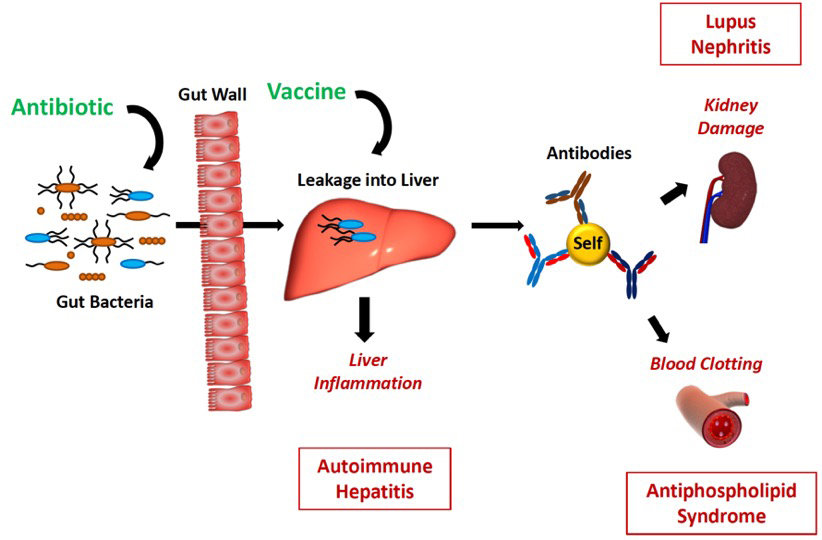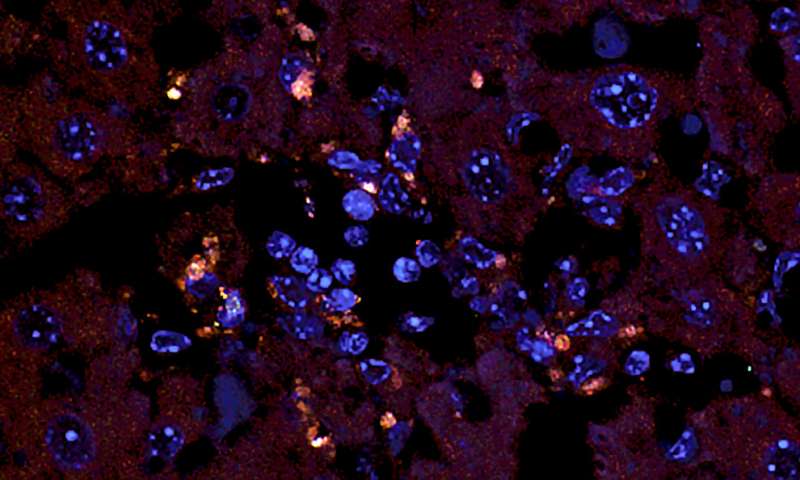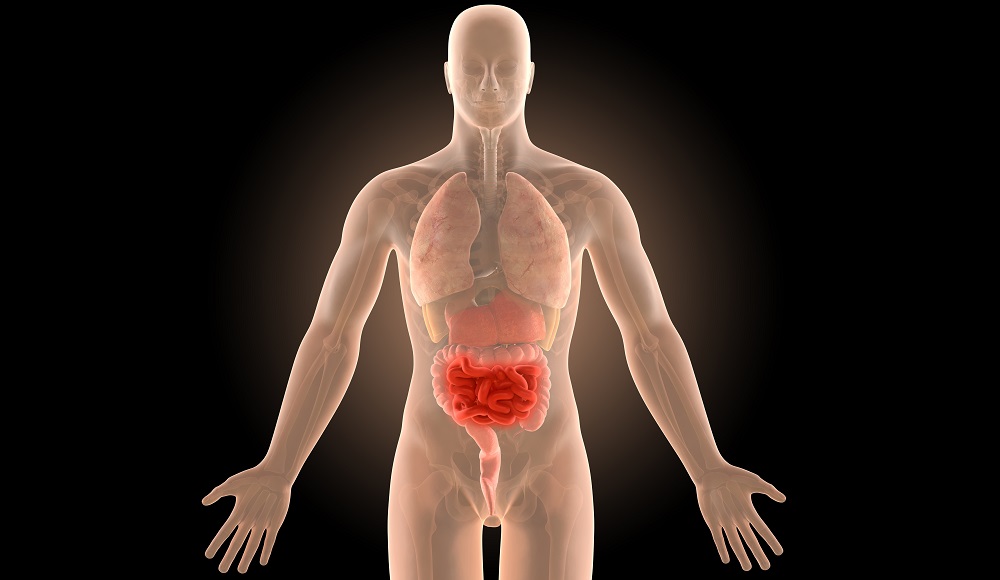Our Enemy Within: Gut Bacteria Fuel Autoimmune Disease
Summary: Scientists just discovered bacteria that trigger autoimmune conditions and found that a simple antibiotic or vaccination stopped the autoimmune reaction. [This article first appeared on LongevityFacts. Author: Brady Hartman. ]
Yale University researchers discovered a strain of gut bacteria that can travel throughout the body and trigger an autoimmune reaction. More importantly, the scientists say that administering simple antibiotics or vaccines can suppress the autoimmune response, and hold promise as new treatments for chronic autoimmune conditions, such as autoimmune liver disease and systemic lupus.
An autoimmune disease is a condition in which the immune system mistakenly attacks healthy tissue. Up until the new study, scientists weren’t sure what causes autoimmune disease. However, researchers have long suspected that bacteria and viruses play a role.
Yale University’s Martin Kriegel, M.D. has devoted the better part of his career to studying the influence of the microbiome on our immune system and is the senior author of the study published on March 7 in the journal Science.
Dr. Kriegel highlights a potential discovery of a treatment for autoimmune diseases, saying
“Treatment with an antibiotic and other approaches such as vaccination are promising ways to improve the lives of patients with autoimmune disease,”
The bacteria that colonize our bodies also called our microbiome are not only essential for life; they are also emerging as a dominant force in human health. Most of what we know about these bacteria comes from research performed by the Human Microbiome Project.
Everybody has a unique microbiota, made up of bacteria, viruses, fungi, parasites, and other organisms. We are dependent on these microorganisms to regulate our immune system and produce certain vitamins. These bacteria help digest our food and keep us healthy by protecting us against disease-causing pathogens. Most of the time these microbes are either beneficial or harmless. However, they can step out of line, causing a host of ailments, and scientists suspect the microbiome plays a role in chronic inflammation.

Kriegel’s group decided to zero-in on a usually harmless gut bacteria called Enterococcus gallinarum. Using mice genetically modified to be prone to autoimmune conditions, the team discovered that the microbe could spontaneously translocate outside of the gut to the liver, spleen, and lymph nodes. Once in these tissues, the E. gallinarum bacteria provoked an autoimmune response and stimulated the release of auto-antibodies and inflammation. The Yale researchers confirmed the same mechanism of inflammation in cultured liver cells of healthy individuals and detected these bacteria in the livers of patients with autoimmune disease.

The researchers conducted additional experiments and found they could suppress this autoimmunity response in mice using an antibiotic or a vaccine targeting E. gallinarum. Both of these treatments suppressed the growth of the bacteria in the target organs and blunted its adverse effects on the immune system. Dr. Kriegel recalled the startling results, saying
“When we blocked the pathway leading to inflammation, we could reverse the effect of this bug on autoimmunity,” adding “The vaccine against E. gallinarum was a specific approach, as vaccinations against other bacteria we investigated did not prevent mortality and autoimmunity,”
Dr. Kriegel and his colleagues say they plan further research on the role of E. gallinarum in autoimmune conditions.
Like this Article?
- Help us spread the word – Click on any of the social media links to share this article.
- Follow us on social media – Google+ or Reddit
References
Cover Photo: EncroVision / Getty Images
“The enemy within: Gut bacteria drive autoimmune disease.” Yale University. March 8, 2018. Press release in MedicalXpress.
S. Manfredo Vieira et al., “Translocation of a gut pathobiont drives autoimmunity in mice and humans,” Science (2018).
Disclaimer
Diagnosis, Treatment, and Advice: This article is intended for informational and educational purposes only and is not a substitute for qualified, professional medical advice. The opinions and information stated in this article should not be used during any medical emergency or for the diagnosis or treatment of any medical condition. Consult a qualified and licensed physician for the diagnosis and treatment of any and all medical conditions. Experimental treatments carry a much higher risk than FDA-approved ones. Dial 9-1-1, or an equivalent emergency hotline number, for all medical emergencies. As well, consult a licensed, qualified physician before changing your diet, supplement or exercise programs.
Photos, Endorsements, & External Links: This article is not intended to endorse organizations, companies, or their products. Links to external websites, mention or depiction of company names or brands, are intended for illustration only and do not constitute endorsements.

I have an auto-immune liver disorder, PBC. This article is very hopeful!